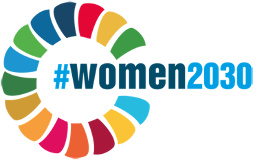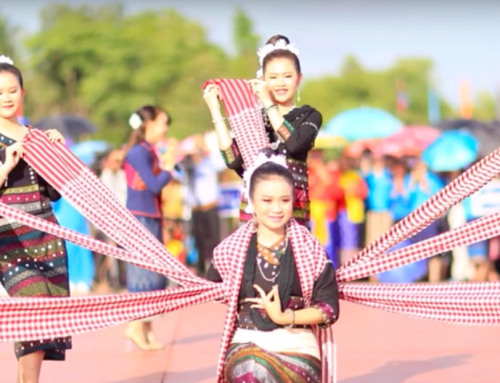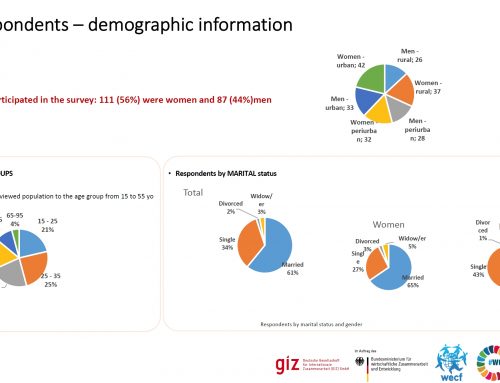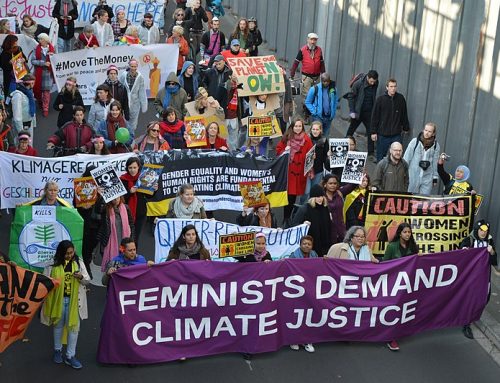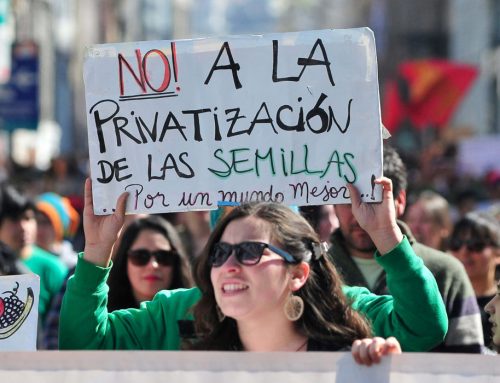August 4, 2017

Participants@ the training
Overtime, various attempts have been made to reduce the level of poverty in Africa, improve women’s socio-economic status, and ensure their access to land, water, sanitation and energy but it always appears no significant results have been achieved. The efforts seem not trickling down to the women on the ground.
One of the programs that has enabled countries to measure the impacts of development efforts in recent times is the Millennium Development Goals (MDGs) which has now metamorphosed into the Sustainable Development Goals (SDGs) and or the 2030 Agenda.
The 2030 Agenda includes 17 goals and 169 targets aimed to transform our world by eradicating poverty and any cruelty that demeans human dignity. It is a plan of action for people, planet and prosperity which is expected to be achieved by year 2030. It is hoped that all countries and stakeholders acting in collaborative partnership will work towards the achievement of the SDGs without leaving anyone behind.
The Centre for 21st Century (C21st) and Echoes of Women in Africa (ECOWA) in partnership with Women Environmental Programme (WEP) organized a one day step down training on Gender and the SDGs. The training is part of the activities under the project “Women CSOs Networking to Realize the Sustainable Development Goals”, also called “Women2030 Project,” funded by the European Commission. The project is also being implemented in other countries of the world by other partner organizations namely: Women Engage for a common Future (WECF), Gender and Water Alliance (GWA), Global Forest Coalition (GFC), and Asia Pacific Forum on Women, Law and Development (APWLD).

Ms Akosa Training participant
The workshop which was held on 18th June, 2017 at the conference hall of West Africa Network for Peace building (WANEP) drew participation from women and gender focused NGOs, local and indigenous women different Civil Society Organizations.
The overall objective of the workshop was to ensure that Women 2030 project builds a base in Africa that will ensure women’s needs are addressed. This was done through emphasizing the importance of gender for policy advocacy and SDGs, movement building, organizational management and the use of social media in gender and SDGs advocacy. Advocacy can be done for particular issues including the SDGs.
The training was interactive and facilitators engaged participants in group work. Skills and what participants do on SDGs were mapped out at the training. This was to help them identify their issues and take action appropriately.
 CSOs who participated in the training easily identified the gender and SDGs areas where their organizations have been working, the advocacy approaches they are using; which range from visible approach such as community mobilization and media campaigns to less visible approach such as advocacy letters and research. They were also able to note the advocacy skills that stand them out and the ones they need. They expressed desire to improve their writing, mobilization, communication and research skills; all tools needed for effective advocacy on gender and SDGs. This information will enable the facilitators assist them more on the.
CSOs who participated in the training easily identified the gender and SDGs areas where their organizations have been working, the advocacy approaches they are using; which range from visible approach such as community mobilization and media campaigns to less visible approach such as advocacy letters and research. They were also able to note the advocacy skills that stand them out and the ones they need. They expressed desire to improve their writing, mobilization, communication and research skills; all tools needed for effective advocacy on gender and SDGs. This information will enable the facilitators assist them more on the.
Apart from the fact that participants at the training were exposed to indepth knowledge on gender and SDGs and how their organizations can impact the grassroots, government and the private sector successfully, other significant features of the Women 2030 programme is to help emerging CSOs stabilize and also help with organizational development, sub-grant to those working and doing what aligns with 2030 project and those who have grafting skills in writing shadow report will be engaged.
Participating CSOs were content with the skills and awareness imbued in them in other to enable them forge alliances that will bring about the impactful implementation of the SDGs in Nigeria.
Ms. Damilola Adeoye
Program Officer
Centre for 21st century Issues (C21st)

